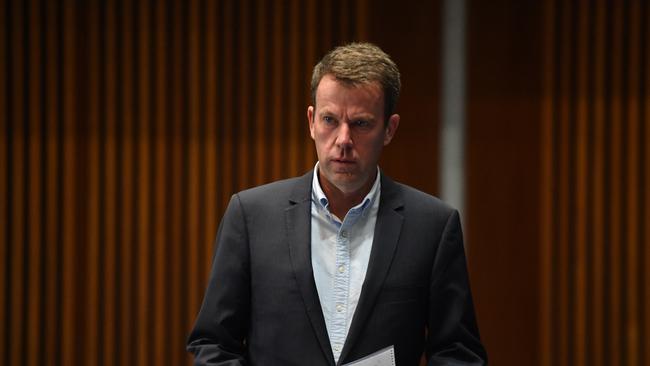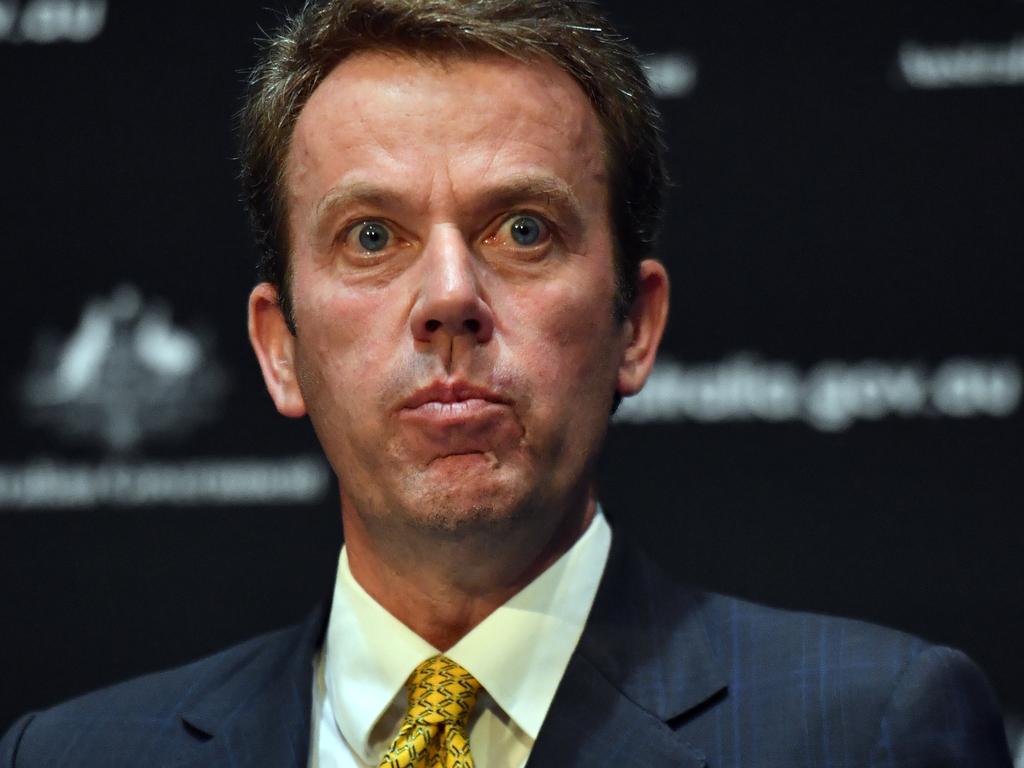Coronavirus: relief package won’t save jobs, unis claim
Universities have warned that the government’s $18bn higher education relief package won’t be enough to save 21,000 jobs.

Universities have warned that the Morrison government’s $18bn higher education relief package won’t be enough to prevent the loss of 21,000 jobs over the next six months as the sector grapples with plummeting revenue after the outbreak of the deadly coronavirus.
Education Minister Dan Tehan announced on Sunday that the government would slash the price of shorter university courses and diplomas in an effort to retrain the nation’s newly unemployed for work in a post-pandemic era with the funding “unashamedly” focused on domestic students.
The package includes funds for new short courses for the unemployed, $18bn for domestic students and $100m in regulatory relief for education providers.
Mr Tehan said the government would also give universities their estimated income from the federal grant scheme despite a heavily disrupted year. “We're slashing the prices of degrees and diplomas in short courses to enable people, rather than bingeing on Netflix, to be able to binge on studying,” Mr Tehan said. “We’re going to need people as we emerge from the coronavirus pandemic.
“This plan will help Australians who have lost their job or are looking to retrain to use their time studying nursing, teaching, counselling, allied health or other areas considered national priorities.”

The government said the 20,000 places offered for the first time in these short courses would also offset university losses from international students and allow greater flexibility.
Universities Australia chair Deborah Terry welcomed the announcement as a “first step” but cautioned that even with the multi-billion-dollar guarantee, the nation’s third-largest export sector faced a tough road.
“We estimate 21,000 jobs at Australian universities will go within the next six months,” she said. “Without guaranteed (federal grant scheme) and HELP funding that figure would have been even higher.
“Individual universities are already cutting costs across the board through very substantial reductions in operational spending, deferral of vital capital works, and reductions in senior staff salaries.”
She said that despite concerted cost-cutting measures, the sector would fail to cover a revenue decline of between $3bn and $4.6bn.
Australia’s most prestigious universities are bracing for heavy losses with the University of Sydney expecting a $470m hit, UNSW expecting a $600m loss and the University of Melbourne projecting a $500m decline. The package has also been criticised for not going far enough with National Tertiary Education Union president Alison Barnes accusing the government of abandoning international students in their hour of need and failing to address the anticipated multi-billion-dollar shortfall in university income this year.
“The $18bn that Dan Tehan is trumpeting is already budgeted for,” Dr Barnes said. “It’s the government funding for domestic students that universities were already expecting. None of it is new money.
“This will not plug the gaping hole in university finances left by the drop in international student income.”
Innovative Research Universities group executive director Conor King said the package would help education delivery but still left universities with a “big hole” in international student fee income, research funding and other commercial income.
“More needs to be done to support international students through the crisis and to support universities while the borders are rightly closed to almost all travellers,” Mr King said.
“It is a reality that the current university system is based on both Australian students and international students. Without the latter, course options will be fewer and we will need fewer staff.”







